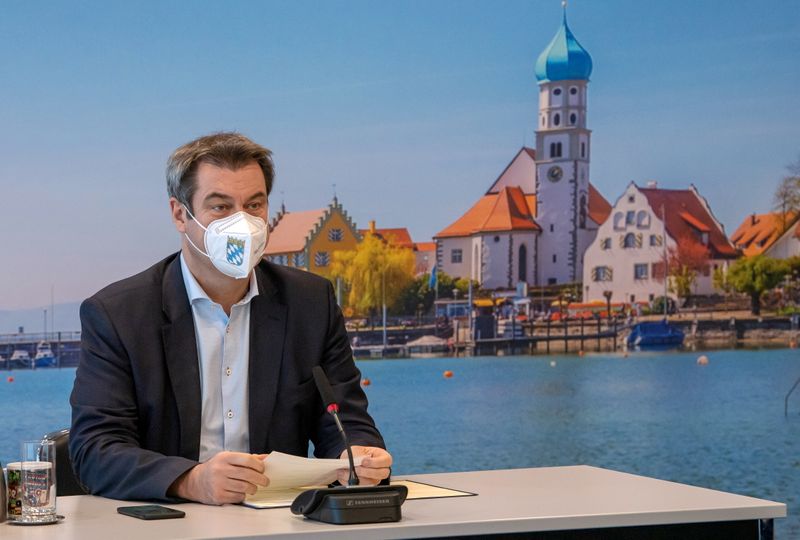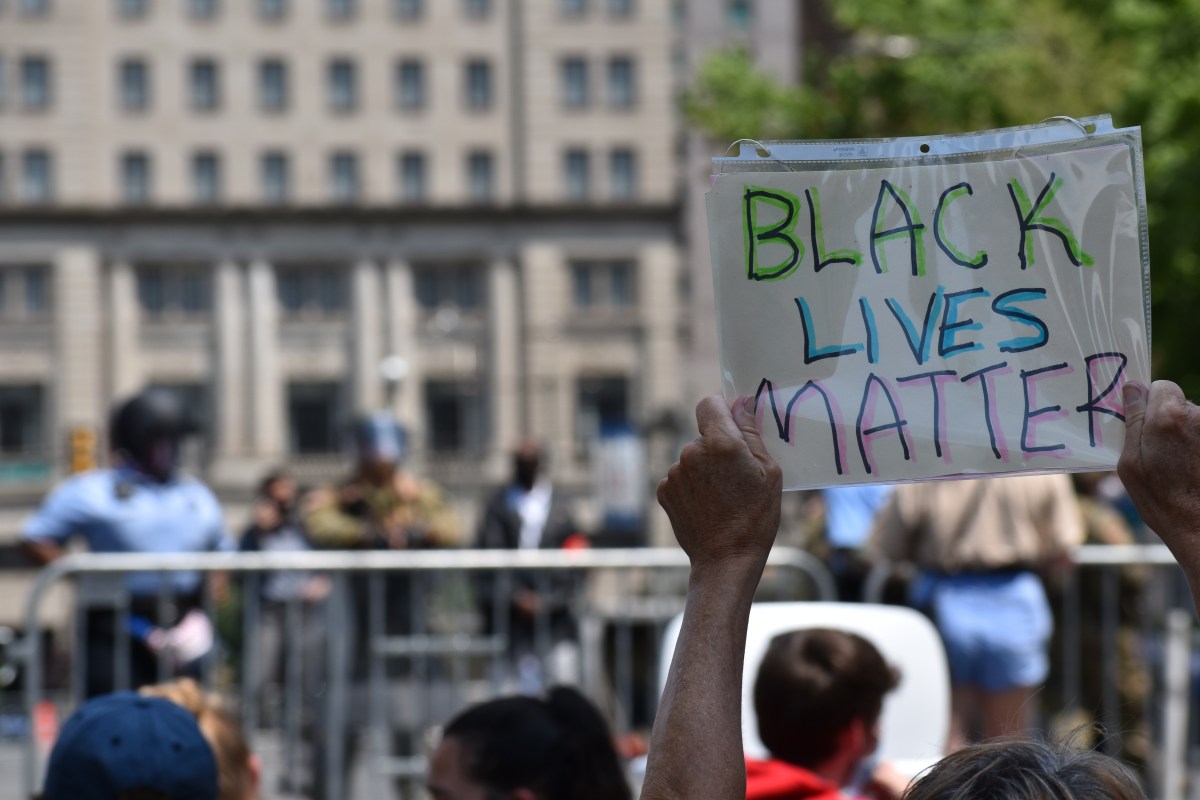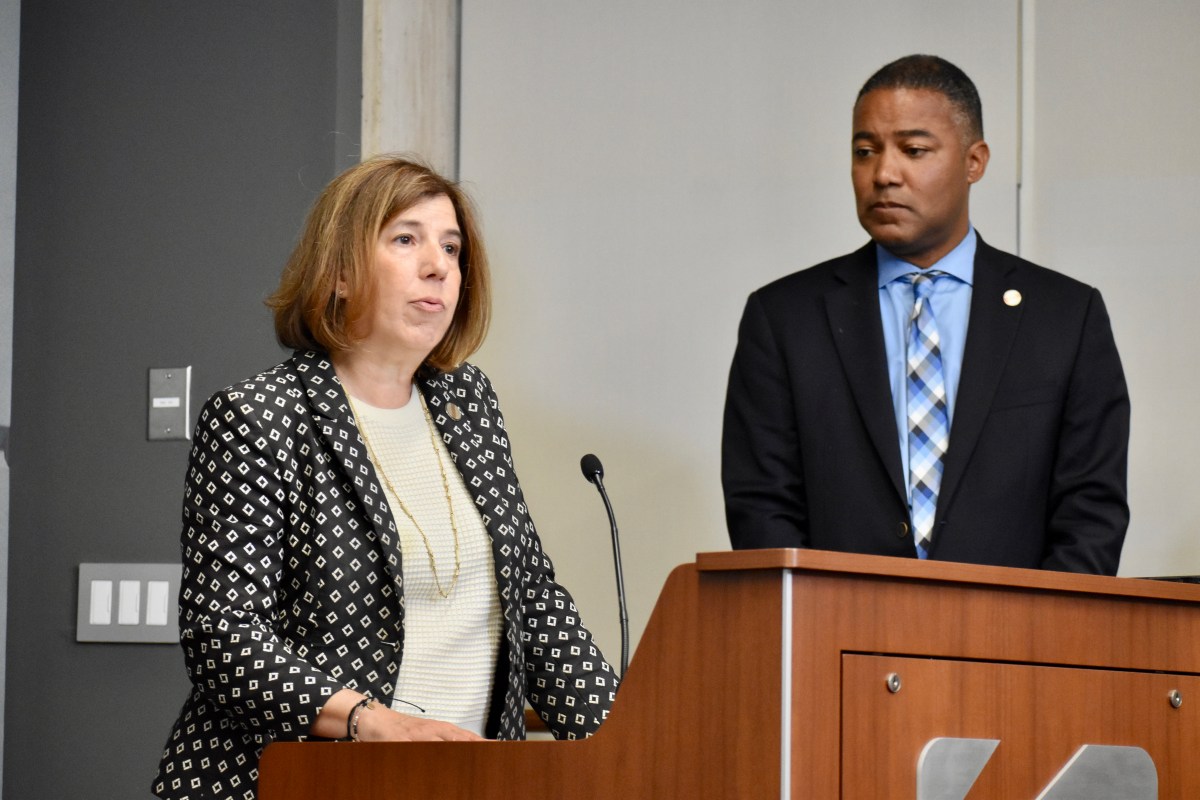BERLIN (Reuters) – A senior member of Angela Merkel’s conservative bloc who is vying to succeed her endorsed the German chancellor’s call for tougher nationwide steps to break a third coronavirus wave, setting himself apart from a rival who is opposed to lockdowns.
“I don’t believe everyone understands how serious the situation is,” Markus Soeder, premier of the southern state of Bavaria, said during a news conference in Munich on Tuesday.
“I believe the chancellor was right with her warning, her concern, her prognosis and assessment,” added Soeder, who leads the Christian Social Union (CSU) – the Bavarian sister party to Merkel’s Christian Democratic Union (CDU).
“We need a single plan for Germany to fight the pandemic and not 16 different plans. I appeal for unity in thinking instead of conflict,” he said in an apparent rebuke to Armin Laschet, the CDU party chairman and premier of the northwestern state of North Rhine-Westphalia.
Soeder and Laschet, who govern Germany’s two most populous states with the largest economies, are the two leading CDU/CSU chancellor candidates in a September election that polls suggest will deliver the conservatives their worst-ever result.
The rift between them bodes ill for the CDU/CSU as frustrations grow over a sluggish COVID-19 vaccination campaign, a face-mask corruption scandal involving conservative lawmakers, and an increasingly chaotic management of the pandemic.
The conservatives have said they will name their chancellor candidate between Easter and the Whitsun holiday in May.
Polls indicate that the bloc would win more votes with the charismatic Soeder at the helm, although a Bavarian leader has never won a national election in post-war Germany.
“It feels very strange when the CDU chairman quarrels with the CDU chancellor half a year before the federal election,” said Soeder, voicing loyalty to Merkel, whose insistence on a hard lockdown has the support of two-thirds of Germans.
LOSING POWER
Merkel, who will step down after four successive terms spanning 16 years, raised the possibility on Sunday of amending the Infection Protection Act to oblige Germany’s 16 federal states, which wield power over health and security issues, to implement stricter measures, which she did not name.
She also accused some state premiers, including the soft-spoken Laschet, of disregarding a March 3 agreement to reverse measures to reopen the economy when infections numbers surge.
Laschet put the ball back in Merkel’s court, saying that his state had imposed a so-called “emergency break” by requiring people to test negative before visiting some shops.
Merkel is under pressure to come up with a plan to reverse a sharp rise in infections which, according to its top public health official, could jump to 100,000 a day from 20,000 now.
Measures agreed between Merkel and state leaders on March 3 stipulate that should the seven-day infection incidence rate surpass 100 per 100,000 people, the “emergency break” should be pulled and restrictions reimposed.
But many state leaders have not shut down schools and non-essential businesses even as the incidence rate has hovered well above 100 for days and hit 135 on Tuesday.
Support for the CDU/CSU hit 26% this week, according to latest polls, down from almost 33% at the last general election.
This puts them only five points ahead of the Greens in second place, and makes a left-leaning governing alliance led by the ecologist party without the CDU/CSU a distinct possibility.
“The big question in German politics is not whether Laschet or Soeder become CDU/CSU chancellor-candidate, but whether the next German government will be formed without the CDU/CSU,” Wolfgang Munchau, director of Eurointelligence, wrote on Twitter.
(Editing by Mark Heinrich)
























